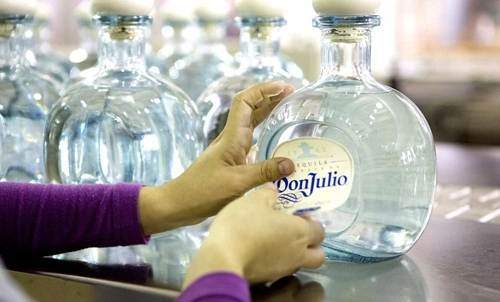As of right now, if you’re reading this, you may already know about Don Julio and Casamigos because these are quite literally among the most famous tequila brands in the country. But the thing is, both of these brands are getting called out on their fake or false advertising claims. Like, they often call their certain products “100% agave” made tequila, but the reality turned out far from it. And this is the reason why we’re seeing this Don Julio Lawsuit, so let’s just talk about it for a minute.

What’s the Background of This Case?
Those of you who have reached maturity certainly would agree that Don Julio has been around for decades and is one of the most prestigious tequila brands. Casamigos, on the other hand, is much newer and gained popularity after its launch by George Clooney and his partners prior to its sale to Diageo in 2017. Both brands claim themselves as “100% Blue Weber Agave.” That label is important; well, it’s the reason you pay $60 or $70 a bottle instead of the bargain kind. But if lawsuits question that claim, it ought to make paying customers sit up.
What’s the Lawsuit About in 2025?
In May of 2025, a class action in Brooklyn, New York, was filed against Diageo. The gist of the complaints was that customers had been misled into believing something different about what goes into Don Julio and Casamigos bottles. Shortly afterward, similar litigations popped up in California and Florida. So now, it is no longer just a New York issue; rather, it is becoming a nationwide case.
What Evidence Do They Have?
According to suits, independent lab results revealed that some bottles were not fully “100% agave.” The tests found that the bottles contained only about 33 to 42 percent of agave-derived ethanol, with the rest being some other kind of alcohol. If this ends up being the case, then the customers are paying premium prices for something that shady pseudo-booze trademarked with a Spanish Granulated Wood Badge.
How Serious Is This Lawsuit?
The problem is not just at the level of mislabeling anymore. Some cases actually mention “racketeering,” a word usually reserved for organized schemes. So, the accusation could be suggesting this was done deliberately rather than by accident. Racketeering charges are serious ones and could scale this case way beyond the usual labeling issue.
What’s Diageo’s Response?
Diageo has denied the allegations with gusto: they have called claims “false” and “baseless,” and they insist Don Julio and Casamigos are, in truth, 100% made from Blue Weber agave as they advertise. They say that there are strict checks to be carried out and that there is nothing misleading going on. It is their firm stand that those lawsuits will be contested.
What Role Does the Tequila Regulatory Council (CRT) Play?
Other players in the game have been fed up, and the CRT has entered the fray as the recognized tequila regulator of Mexico. They are concerned partly about the “additive-free” proposition some brands make. Under Mexican law, small amounts of additives/sweeteners/colorants are permissible in tequila. If a brand claims to be additive-free, the CRT feels that such a statement may be confusing and make the other tequilas that comply with the legal measure less authentic. They feel that if not properly dealt with, they could even hinder exports.
Is There a Settlement Yet?
By July 2025, the case had not reached a settlement. The lawsuits are presently ongoing at the federal and state levels. Compensation and honest labels are what the consumers seek. On the other hand, Diageo remains firm and stands behind its products. If anything changes on that, we will keep you updated.